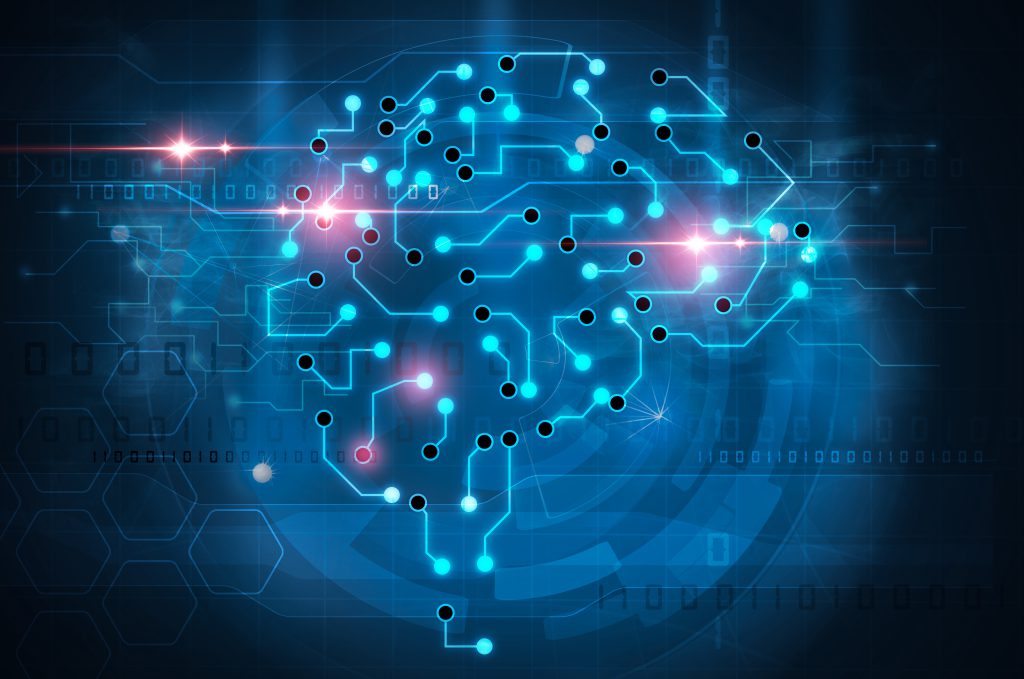The U.S. National Academy of Engineering (NAE) highlighted reverse-engineering of the human brain as one of the world’s greatest research challenges in the 21st Century. It was established as a priority alongside the economization of solar power and the realization of fusion on earth. By incorporating the aim of breaking down human cognitive abilities and building systems that can replicate them onto this list, the NAE essentially brought the field of artificial intelligence (AI) and machine learning out of an exclusively digital space and into the remit of materials science. Advanced ceramic materials, alloys, composites, polymers, and more, are now at the forefront of AI research efforts.
Before going into the role advanced ceramic materials will play in the future of AI, it is worth dispelling a few myths regarding the technology and establishing a firm definition as to what AI really means from an engineering perspective.
What Actually is Artificial Intelligence?
In 1956, an American computer scientist by the name of John McCarthy headed the Dartmouth Artificial Intelligence (AI) Conference, inviting top researchers from a range of fields to discuss how a machine could be made to simulate intelligence. The key word therein – which is often overlooked – is simulate. Some popular scientists maintain that creating a machine with the intellectual capabilities of the human brain would be disastrous for our species, but the reality is that AI engineering is largely focussed on designing systems that use human reasoning as a model rather than an endpoint.
The Encyclopaedia Britannica defines artificial intelligence as:
“the ability of a digital computer or computer-controlled robot to perform tasks commonly associated with intelligent beings.”
Many existing technologies already fulfil this basic definition. For example: Google’s machine learning systems autonomously crawl webpages and rank them in search engine results pages based on thousands of complex algorithmic factors. This is a form of adaptation to different circumstances, which is a key function of the brain. Current generation AI systems might more accurately be described as deep-learning machines, which was always the aim first established by the Dartmouth conference. Researchers working with AI largely believe that the technology is undergoing a period of implementation that will gradually normalize the technology.
The real problem that advanced ceramic materials must solve, therefore, is not one of functionality but of sustainability.

Advanced Ceramics Materials and Sustainable AI
The problem with AI is that it is universally an energy-intensive technology. New research suggests that training a single AI system can generate as much as 284 tonnes of carbon dioxide (CO2); the equivalent of five times the emissions of an average car over its entire lifetime. This comes down to the material restrictions of current memory technologies, including random access memory (SRAM/DRAM) chips and non-volatile storage technologies (NOR/NAND). These systems each fail to meet the capabilities that engineers strive towards when seeking to manufacture a single-use chip based on advanced ceramic materials that can be used universally in memory applications.
In an open-access article published in the International Journal of Ceramic Engineering and Science, researchers demonstrated the durability, nonvolatility, speed, and low power consumption of novel memory systems based on the advanced ceramic material crystalline indium-gallium-zinc oxide. One of the key highlights of this research is the comparison of their advanced ceramic material to a conventional silicon field-effect transistor (FET). The results show that the FET leaks currents on an order of a quadrillion times more than their novel ceramic arrangement.
The implications of this are obvious: advanced ceramic materials are fundamental to realizing sustainable AI for a brighter and more efficient future, helping introduce beneficial machine learning into more systems to improve the quality of virtually every market on the planet.
Advanced Ceramic Materials from International Syalons
International Syalons is the UK’s foremost supplier of advanced ceramic materials. We offer products for demanding areas of application and share recent research into new innovations in the field of materials science.
If you have enjoyed this article, read our recent blog post regarding the Future of Technical Ceramics: AI, IoT & Industry 4.0. Or, if you have any questions simply contact a member of the International Syalons team today.
References:
https://www.popsci.com/scitech/article/2008-02/grand-engineering-challenges-21st-century/
https://www.britannica.com/technology/artificial-intelligence


